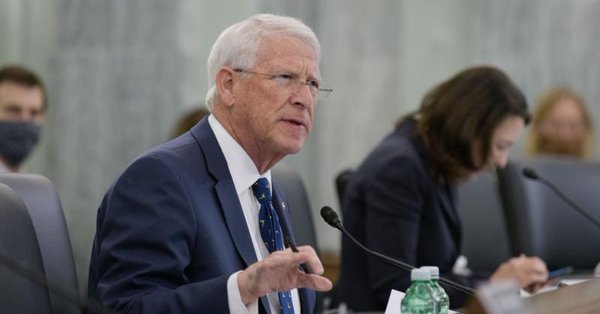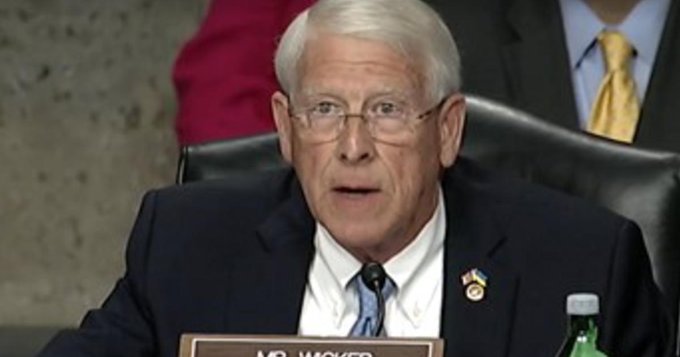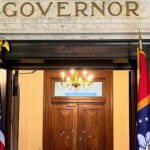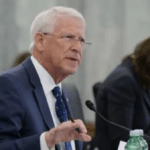Wicker: Celebrates return of Gulf Coast rail
By U.S. Sen. Roger Wicker (R-Miss.)
Passenger Rail Returns, Two Decades After Katrina
At last, passenger rail is returning to the Mississippi Gulf Coast. In 2005, Hurricane Katrina shuttered the line that carried tourists and travelers along our shore. As we rebuilt the coast, Mississippi emerged stronger from the storm. Yet without restored commuter train service, our recovery remained incomplete. This August, after 20 years of effort, that changes.
New Rail Line Facilitates Growth
A new commuter rail service called the Mardi Gras Line will begin running twice-a-day to and from Mobile, Alabama, and New Orleans, Louisiana. Along the way, the train will stop in four Mississippi cities – Pascagoula, Biloxi, Gulfport, and Bay Saint Louis. The ride will be scenic and comfortable. As they take in the southern Mississippi landscape, passengers will enjoy a café, free wi-fi, and spacious rows with no middle seats.
The Mardi Gras Line will create new economic benefits. Researchers expect the population of the Gulf Coast to continue rising. As more people move to the region, business and tourist activity will follow. Though Mississippi regularly welcomes guests from all over the world, most of our visitors come from nearby states. The new passenger rail service makes it easier for our neighbors to tour Mississippi. It will create jobs for those maintaining and staffing the line, companies supporting the train operations, and local businesses benefiting from visitors. The Mardi Gras Line can also promote public safety, offering an alternative to driving.
Years of Collaboration Bear Fruit
Restoring this 145-mile stretch for passenger rail required years of deliberation and collaboration among business leaders and officials from local, state, and federal government. In 2015, the late Senator Thad Cochran and I helped form the Gulf Coast Working Group. The board included elected officials, rail groups, and other interested parties, and they wrote a report that underscored the value of reestablishing the train line. The panel recommended next steps for the project, including funding needs.

Federal Efforts Enabled Mardi Gras Line
In the Senate, I spent the next ten years securing federal investment and holding countless conversations with those involved. Serving as the lead Republican on the Senate Commerce Committee helped me to advocate effectively for Gulf Coast rail. My colleagues and I created the Consolidated Rail Infrastructure and Safety Improvements (CRISI) program, which can be used to invest in intercity rail service. We enacted these grants with projects like Gulf Coast rail in mind.
In 2016, a group of us rode an “inspection ride,” taking a passenger train across many of the stops on the Mardi Gras Line. Thousands of community members came to watch the train roll into their cities. Local school bands performed, cheerleaders led the crowd in chants, and people lifted homemade signs of celebration.
It was clear the public supported the effort. But the project was complicated, and progress came slowly. For a time, I urged officials repeatedly to complete tests of important rail safety systems, without which we could not proceed. At Senate hearings, I pressed Transportation Secretary nominees and federal rail officials about their commitment to Gulf Coast rail. I helped address the concerns of freight rail lines, which share track with passenger trains. In meetings, phone calls, and letters, I advocated for the project and worked to bring interested groups to consensus.
During the negotiation for the bipartisan infrastructure law, I successfully fought for Mississippi’s access to development funds for broadband, roads, bridges, research, and rail. When it became clear that rail needs in the Northeast threatened to swallow up funds for the rest of the country, I ensured that an increased percent of those funds be given to projects outside that region.
The Mardi Gras Line will finally come to life in August, along with prospects for job creation. Reconnecting the Gulf Coast to the nationwide passenger rail network will not only turn a page on Hurricane Katrina but should expand opportunity in our state for years to come.
This column is the weekly Wicker Report from U.S. Sen. Roger Wicker, who is solely responsible for its content.



